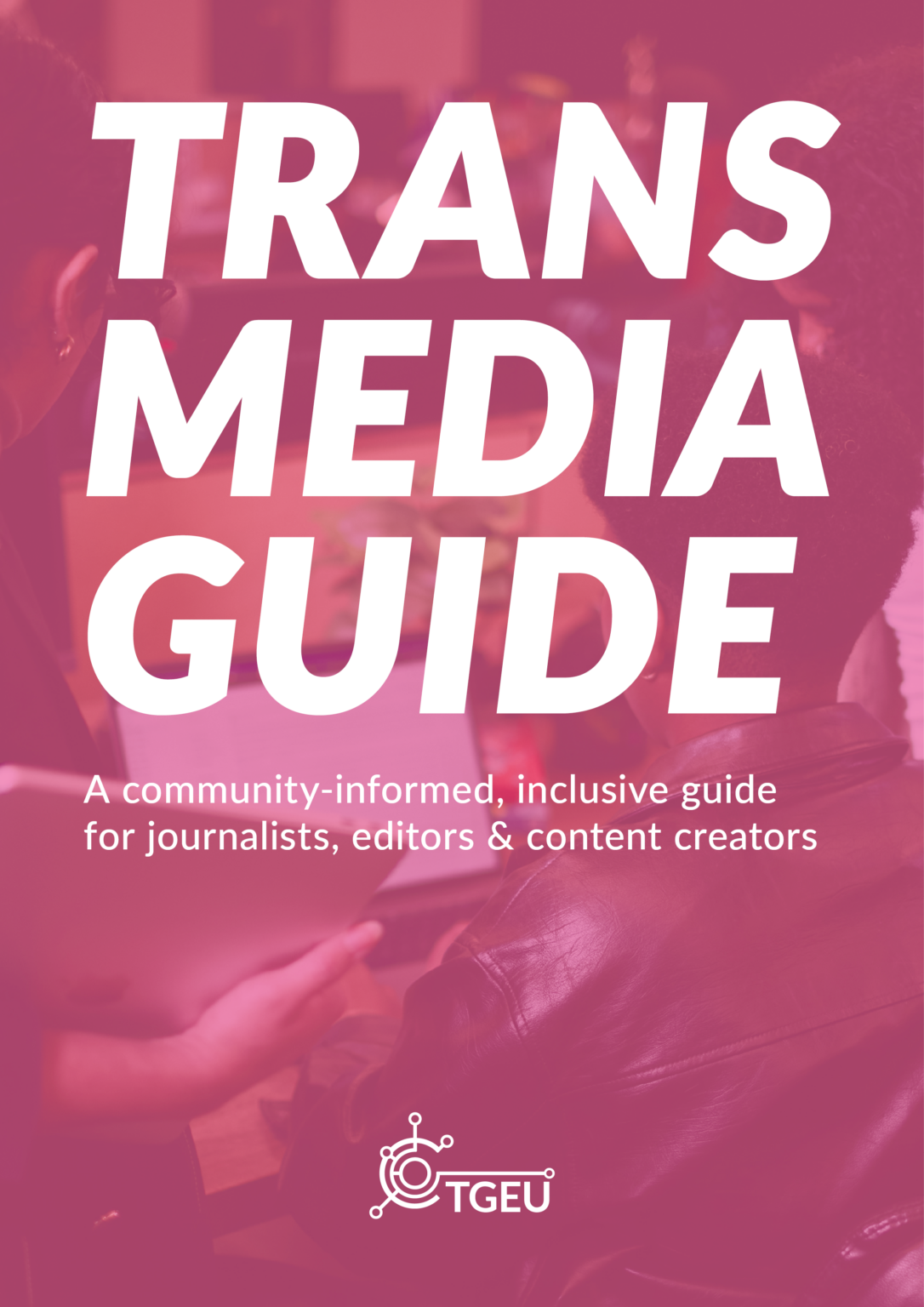Trans Media Guide: A Community-informed, Inclusive Guide for Journalists, Editors & Content Creators

TGEU’s new Trans Media Guide provides tips on how to cover stories about trans and non-binary people, ethically and respectfully. It contains references to reliable sources of verified data. There is also a list of contacts for a few relevant activist communities and human rights organisations.
About the Trans Media Guide
Our Trans Media Guide is based on collective knowledge. It collects a diverse range of experiences on inclusive, trans and non-binary informed journalism and representation. It was created in close collaboration with TGEU members. The guide is available in English, Portuguese, and BCMS (Bosnian, Croatian, Montenegrin, and Serbian).
What’s in the guide?
The Trans Media Guide contains five key parts:
- Practice – a practical guide on how to cover stories about trans and non-binary people in an ethical and respectful manner. There are also references to reliable sources for verified data and contact information.
- Key themes – introductory material into key issues that trans communities are dealing with.
- Myth busting – an overview of dangerous myths. We particularly focus on myths that are often enhanced by media based on misinformation. Real facts, based on evidence and data, are provided.
- The glossary – key definitions adopted by civil organisations and trans-informed journalists.
- Cheat sheet: quick checklist – a summary of all the recommendations. This can be used separately from the Guide.
Who is this guide for?
This guide is specifically designed for journalists, editors, and content creators. This guide brings together recommendations and knowledge from other publications and guidelines.
Additional languages
As well as English, the guide is also available in Portuguese and BCMS. Produced in collaboration with our local members, these versions are more than a translation. Here we deep dive into the intricacies of the Portuguese-speaking and BCMS-speaking regions. Download the guide in Portuguese or BCMS.